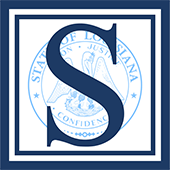LSU-Shreveport chancellor recommends professor’s termination, university violated law
As it appeared in The Shreveport-Bossier City Advocate
LSU-Shreveport chemistry and physics professor Dr. Brian Salvatore has argued from the beginning that his termination hearing on April 8 was an open meeting, one that should have been properly advertised to the public and open to those who wanted to come to listen.
This week, 19th Judicial District Court Judge Beau Higginbotham agreed, ruling that LSU Shreveport did, in fact, violate the state open meetings law. Though a win for Salvatore, Judge Higginbotham opted not to nullify the results of the hearing, nor did he levy a fine against the university for the violation.
Salvatore’s attorney Art Smith III of the Smith Law Firm in Baton Rouge says that can be changed at the appeal court or state supreme court level. “The open meetings law was not set up to be a toothless tiger,” Smith told The Shreveport-Bossier City Advocate. “But I think what is important is the 19th JDC finding that they (LSUS) violated the open meetings law.”
LSUS had no response to the ruling, stating in an email that “We have no knowledge of a ruling at this time, so we can’t comment.”
Shreveport attorney Patricia Gilley is the lead plaintiff in the case, one of three people who filed the open meetings lawsuit against the university. She was among several who were turned away from the termination hearing for the tenured 21-year professor.
“It was not really what we wanted, but certainly we got a very important ruling as to what is required if one of the LSU systems is going to terminate a tenured professor,” Gilley said. “They (LSUS) knew what the rules were, they chose to ignore them. It would be disingenuous to say that they didn’t know it was an open meeting. Unfortunately, the judge did not follow through and declare whatever transpired as a nullity — for whatever reason the judge chose not to — that could be a battle for another day.”
Both Gilley and Smith said that the ruling gives Salvatore’s case a firmer footing moving forward. “It establishes facts and findings of law,” Gilley told us. “It shows that the LSUS administration just ignored the law, they just ignored it.”
“It was a legally invalid hearing,” Art Smith III said. “They (LSUS) now have a tenured hearing that was a violation of open meetings. If I was them, I would prefer not to have a finding that your tenured meeting was a violation.”
Art Smith III stated previously that he believed the university presented no “actual evidence” during the five-hour hearing. “They read second and third hand statements, it was very argumentative, and they used a lot of adjectives to characterize Salvatore’s free speech in the worst possible light. All the charges were related to free speech. A ‘hostile workplace environment’ comment was a characterization about some of the comments he has made to people while defending open meetings law.”
Smith said the next step in the firing has also occurred — LSUS chancellor Dr. Robert T. Smith has forwarded his termination recommendation to LSU System President William F. Tate IV. Smith said his response on behalf of Salvatore will be sent to Tate on May 31. Should Tate uphold the termination, Smith said recourse can come from the LSU Board of Supervisors or, if needed, in court.
Gilley says Salvatore has a trove of evidence on his side. “It was really a result of his desire to speak truth to power, that’s why he was treated so poorly by the (LSUS) administration.”
Smith said he is worried for LSU, a university he has long loved. “I’m not only sad for Brian and his wife, I’m sad for LSU. I don’t want them to go down in history as the first one to fire a tenured professor for free speech.”
